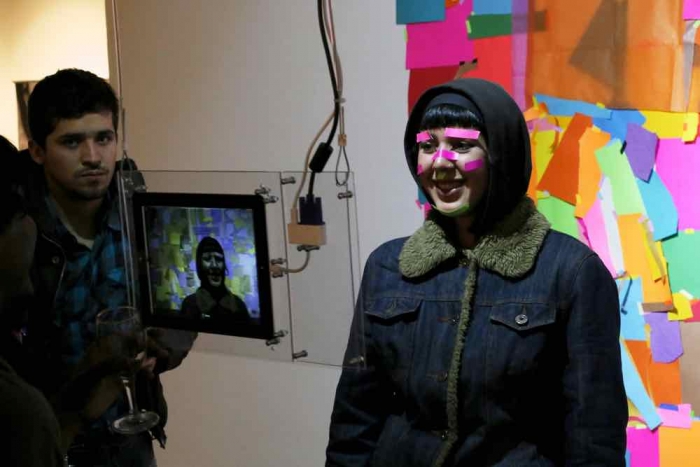Curated by Jennifer Vanderpool
The William Rolland Gallery of Fine Art
California Lutheran University
November 23, 2020-March 19, 2021
Inspired by mutual aid societies that assist members communally and employing this as a curatorial strategy, I invited ten artists to exhibit who, in turn, each invited an artist who then each asked an artist to participate, and the project continued to expand.
The artists featured in the Common Ground exhibit included:
April Bey, Arnold Tunstall, Autumn Bland, Badly Licked Bear, Christopher Mason, Christopher Velasco, Deborah Martin, Djones, Jane Callister, Jill Emery, Joshua Cleveland, Joshua Wittenburg, Justin Luis Arroyo, Kia Pooler, Michael Hanson, Tania Jazz Mont, Walpa D’Mark, Xarabyte, Yusef Ferguson, Zameh Omonuwa, Dylan Parsons, Chet Glaze, Lucas Murgida, James Gobel.
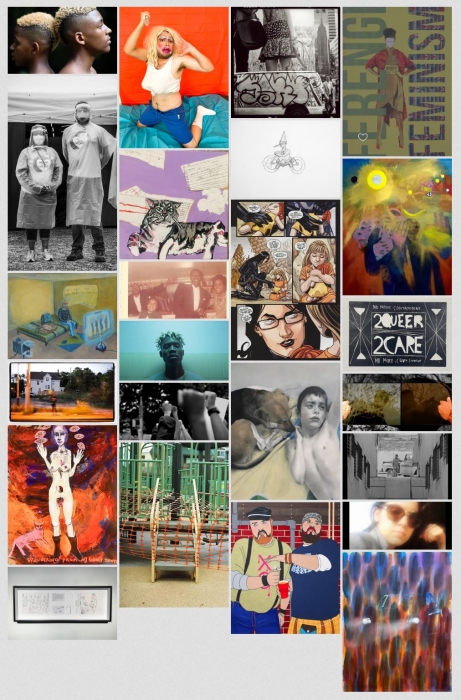
The work included in Common Ground: Artists Reimagining Community engaged, investigated, and questioned the concepts of what “community” is, how we, as a communal society, engage in civil contestation and have the ability to reimagine what it can be by addressing the sociopolitical and economic ruptures laid bare by COVID-19 and the BLM movement. Who is empowered to be heard and participate in crafting what makes a happy, healthy, equitable, and socioeconomically thriving community? Art, as a mode of storytelling, can facilitate these conversations.
Common Ground Conversation Series
This multi-part transdisciplinary lecture series paired an artist and researcher in conversation to discuss concepts of “community” from their disciplines.
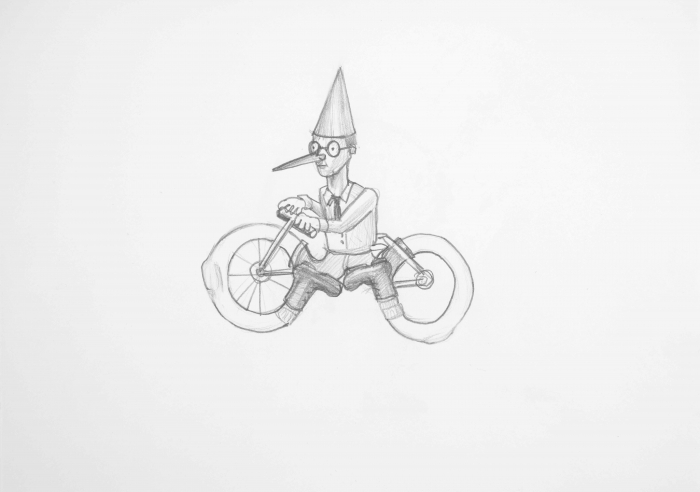
Jane Callister, Man on a Bicycle with Legs for Wheels, 2018, From the It Started with a Crocofish Series (Pencil on Paper) (9″ x 12″)
Kindness and Aging paired artist Jane Callister in conversation with Dr. Lené Levy-Storms, Hartford Faculty Scholar Departments of Social Welfare and Medicine/Geriatrics, Bedari Kindness Institute, UC Los Angeles. They discussed concepts of kindness and its implementation in our communal world. Callister talked about “kindness” as a theme in contemporary art practices and her new body of work It Started with a Crocofish created in collaboration with her father as he struggled with Alzheimer’s and cancer. Levy-Storms addressed the role of “kindness” as it intersects with modes of communication and caregiving to older adults living with Alzheimer’s and chronic disease and optimizing urban spaces for the well-being of the low-income community elders.
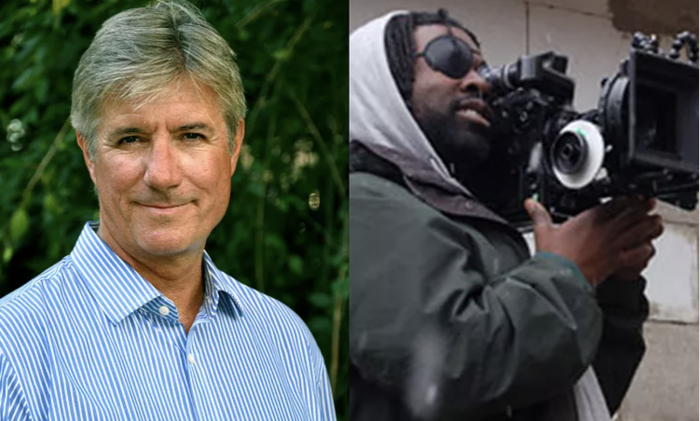
Dr. James E. Young and djones
Memories of Home: Memorial, Meaning, and Filmmaking paired Atlanta-based documentary filmmaker djones in dialogue with Dr. James E. Young, Distinguished Professor Emeritus and Founding Director of the Institute for Holocaust, Genocide, and Memory Studies at the University of Massachusetts Amherst. They discussed djones’ film 631, 2008, which documents his family’s stories through their ownership and struggles to maintain a multigenerational home in Youngstown, Ohio. Employing the film’s visual narrative as a lens, the panelists addressed the intersections of personal narrative and how these shared private stories inform public socio-cultural discussions and understanding of memory and memorializing events.
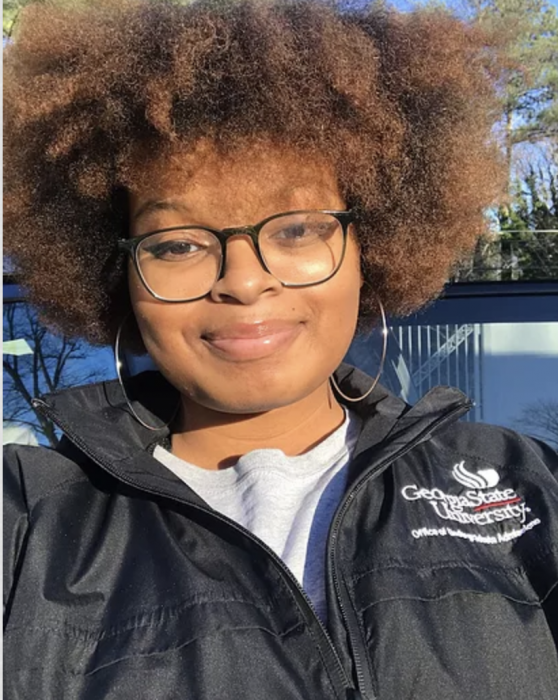
Zameh Omonuwa
In the Memories that Aren’t Ours: Experimental Film from Atlanta, Zameh Omonuwa and Yusef Ferguson discussed their films exhibited in the Common Ground. Omonuwa described her film, Hood. as “an experimental work that follows a White teen and a Black teen as they transfer consciousness by putting on an enchanted hood, and dives into the Black teen’s trauma, fears, hope, and wonder.” Ferguson’s film Rebellion in the Valley interweaves his grandfather’s stories about the Black LA art and film scenes in the 1970s with his intention of honoring filmmakers from this period, beginning with the 1965 Watts Riot.
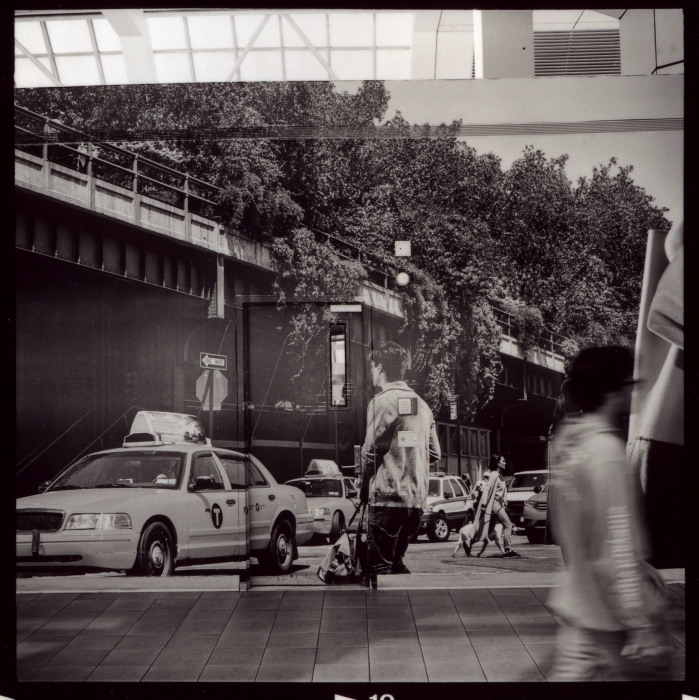
Arnold Tunstall, LaGuardia, 2011, Printed 2018 (Selenium toned gelatin silver print) (10″ x 10″)
Framing Architecture and Reimaging Communities paired Akron-based photographer Arnold Tunstall in conversation with urban planner Dr. Kelly Kinahan from the University of Louisville and sociologist Dr. Cynthia Duarte who is the director of the Sarah W. Heath Center for Equality and Justice Collectively at California Lutheran University. The panelists discussed the framing of communities through architecture, laws (written and unspoken), visual culture, and urban planning. They explored ways our living, working, and recreational spaces are approached and imagined methods to redefine constructs that delimit what communities are and how we can pivot to opportunities fostering growth.
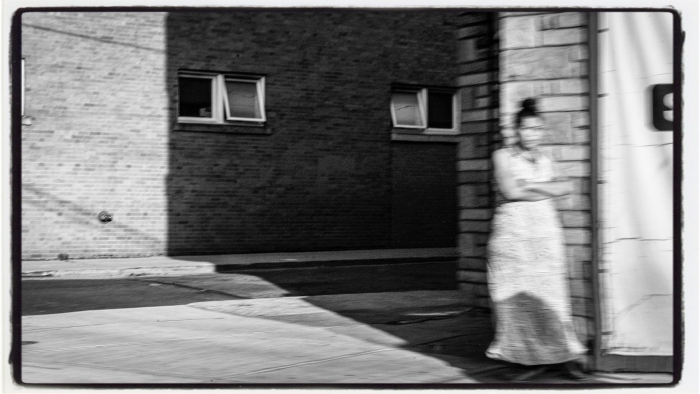
Christopher Mason, Female sex worker on Lorain Avenue, Cleveland, OH, 2020 (Archival Inkjet Print) (16″ x 9″)
Sex Work and Visual Culture paired Cleveland-based photographer Christopher Mason in conversation with Dr. Barbara Tannenbaum, who is Chair of the Prints, Drawings, and Photographs and Curator of Photography at the Cleveland Museum of Art, and Dr. Penelope Saunders, who is the Executive Director of the Best Practices Policy Project, a national policy platform dedicated to the health and rights of sex workers. Employing Mason’s photographs of sex workers in Cleveland and communities in Northeast Ohio as a starting point, the panelists discussed social practice photography, public representations and perceptions of sex workers, voyeurism, and sex workers’ labor and humanitarian rights.
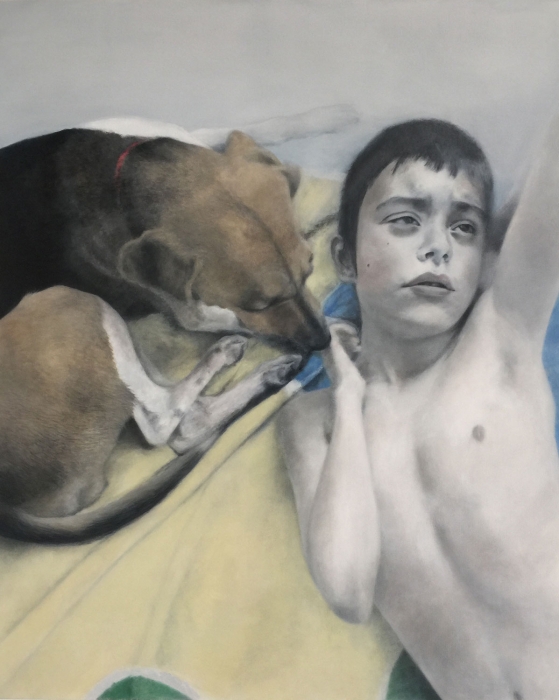
Deborah Martin, Buddha with Service Dog Mouse, 2017 (Oil on Canvas) (36″ x 48″)
This conversation Autism Spectrum: Representations of Perceptions paired Los Angeles-based artist Deborah Martin with Dr. Emma Salzman, Assistant Clinical Professor at UC San Francisco Center for ASD & NDDs. Employing Deborah’s painting series Portraits of Autism, which seeks to create social awareness of children and adults on the Autistic spectrum as a starting point, the panelists discussed public representations and perceptions of autism, support systems available, and the evolving sociocultural understanding of autism.
